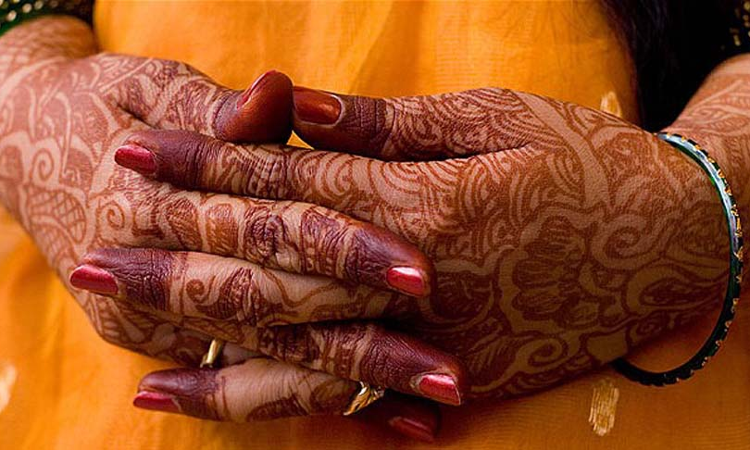Need For A legislative Overhaul Of Dowry Prohibition Statutes
Intisar Aslam
22 Dec 2021 6:44 PM IST

The Department of Women Welfare in Uttar Pradesh has sought affidavits from public servants declaring that they have received no dowry when they got married. All government servants, who got married after April 31, 2004, had to comply with the direction or face action. The Kerala Women's Commission has also received many complaints about the inaction on the part of police authorities in cases of dowry. Rather seeking seeking affidavits or flaying the cops, the situation calls for an urgent revamp in Dowry legislations .
The Dowry Prohibition Act, 1961 was enacted to prohibit the "giving and receiving of dowry". The objective of the Act is, prima facie, flawed. Criminalizing the "unwilling act" of the victim and her family is the primary obstacle in serving justice, Section 3(1) of the Act states that even giving of dowry shall be punished "with imprisonment for a term which shall not be less than five years, and with the fine which shall not be less than fifteen thousand rupees or the amount of the value of such dowry, whichever is more." This fear of being punished, prevents many dowry cases from being reported (let alone rendering justice to the victim) and further perpetuates the dowry system in India. It goes without saying that where the law punishes both the plaintiff and the defendant, one would be deterred from filing a case. Another shortcoming in the Act is Section 3(2) which provides an exception to Section 3(1). Section 3(2) allows gifts that are of a "customary nature". The definition of a "voluntary gift" and a "forceful gift" is missing. Perpetrators invoke this exception while claiming the dowry as "presents of customary nature" to avoid conviction. Therefore, "dowry" must include "gifts' in its definition in addition to "property and any valuable security" as contained in the Act.
Secondly, Section 304-B of the Indian Penal Code (IPC) deals with dowry death. It states, "Where the death of a woman is caused by any burns or bodily injury or occurs otherwise than under normal circumstances within seven years of her marriage…" – This phrase, "within seven years of marriage", lets the perpetrators go scot-free. It acts as a catalyst working as a conspiracy period. As this limitation period ends, the crime is committed in the eighth year of marriage. Therefore, this presumption period of "within seven years of marriage" must be increased. Dowry death is violative of Article 4.2 of the InternationalCovenant on Civil and Political Rights (ICCPR) which regards the Right to Life (Article 6.1) and Right to Freedom from Torture (Article 7) as inviolable rights. These rights are also recognized by the Universal Declaration ofHuman Rights (UDHR). One of the ambiguities was removed by the Supreme Court of India in Satbir Singh v. State of Haryana. The Supreme Court said that the phrase "soon before her death" does not necessarily mean "immediately before" and there must be a "proximate and live link" between cruelty and consequential death of the victim. Such interpretation of legislation is urgently needed. Domestic violence is an act that might happen even after fifty years of marriage and cannot be defined by a mere time frame.
Thirdly, Section 498-A of the Indian Penal Code (IPC) deals with cruelty to women by the husband or relative of the husband which is punishable with up to three years of imprisonment. It includes mental and physical harm. The prescribed punishment for such a wilful act must be increased. Such torture is violative of Article 12 of the International Covenant on Economic, Socialand Cultural Rights which recognizes the "right of everyone to attain highest attainable standard of physical and mental health."
As per an RTI (dated November 12, 2021) filed by this author with the Delhi Police, various Station House Officers have responded with the number of cases registered and the cases disposed of along with the number of dowry deaths in their respective areas.
| Place | Dowry Complaints | Dowry Deaths | Pending Investigation | Disposed off |
| C.R. Park | 9 | 0 | - | 0 |
| Hauz Khas | 10 | 0 | - | 0 |
| Tigri | 28 | 2 | - | 0 |
| Tilak Nagar | 19 | 1 | 19 |
|
| Khyala | 15 | 1 | 15+1 (Dowry Death) |
|
| Sangam Vihar | 27 | 2 | - | 1+2 (Dowry Death) |
| Neb Sarai | 32 | 3 | 26 | 1 |
| Shahdara | 382 | 9 | - | 30+2 (Dowry Death) |
| Malviya Nagar | 43 | 1 | - | 6+1 (Dowry) |
| Saket | 17 | 1 | - | 1+1 (Dowry Death) |
Additionally, the disposal rate (part of RTI reply) was a mere 3.19% in the Sangam Vihar area of Delhi.
When the national capital itself paints such a gruesome state of affairs, the need for revamping the legislation is much required. The rate of disposal is appalling which is further exacerbated by the thought that the data reveals a very tiny part of the larger picture. This demands a serious change in the Indian legislation. The laxity exhibited by the adjudicating authorities in admitting dying declarations, suicide notes (not to mention the delay in justice) impedes proper enforcement of the anti-dowry Act. Eliminating gender-based violence is imperative as it violates the Convention on Elimination of all Forms of Discrimination(CEDAW) which is a constitutional obligation. It is high time that India realizes the dire need for restructuring the legislation.
Views are personal.


